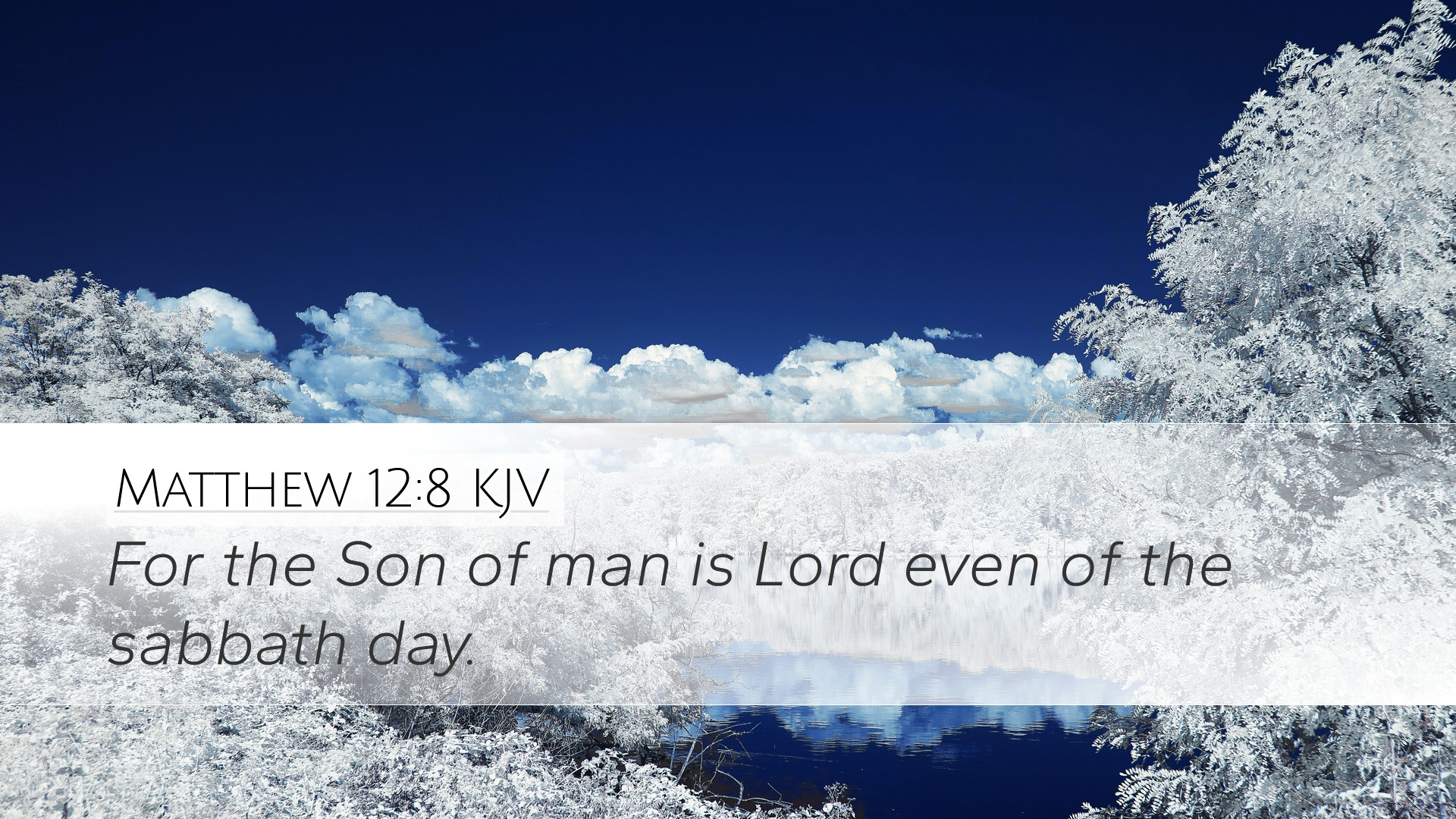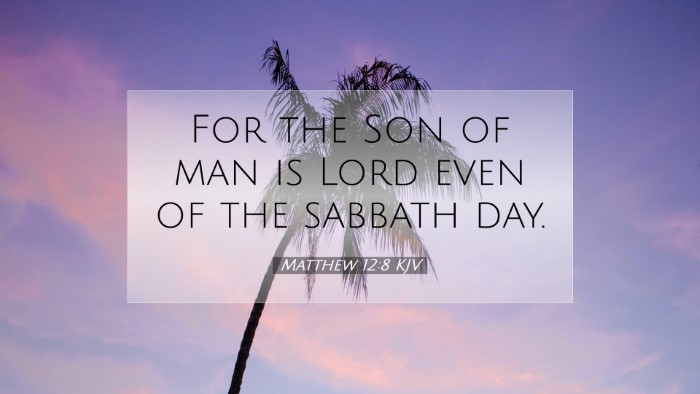Commentary on Matthew 12:8
Verse: "For the Son of man is Lord even of the sabbath day." (Matthew 12:8)
Introduction
The phrase "For the Son of man is Lord even of the sabbath day" is a profound declaration by Jesus, emphasizing His authority over the sabbath. In this commentary, we will explore the implications of this statement, focusing on its significance for religious observance, Christ's identity, and the intersection of mercy and legalism.
Contextual Background
To appreciate the depth of Matthew 12:8, one must examine the surrounding context. Jesus performs several miracles and encounters increasing opposition from the Pharisees. The specific incident leading to this declaration occurs when Jesus' disciples pluck and eat grain on the sabbath—an act that the Pharisees interpret as unlawful (Matthew 12:1–2).
Historical Context
The sabbath was a crucial aspect of Jewish law, rooted in the creation narrative and the commandment to rest. The religious leaders had constructed numerous rules surrounding sabbath observance, which had led to a burdensome legalism, often overshadowing the spirit of the law.
Commentary Insights
-
Authority of Christ
Matthew Henry notes that in claiming lordship over the sabbath, Jesus asserts His divine authority. This claim reinforces His identity as the Messiah and the very embodiment of rest and fulfillment predicted in the scriptures.
-
The Role of Humanity and Mercy
Albert Barnes expands on the significance of mercy in connection with the sabbath. He argues that the sabbath was created for human benefit, not as a rigid mandate. Hence, acts of kindness and necessity are fitting on this day.
-
Interpretation of the Law
Adam Clarke emphasizes the need for understanding the sabbath law in light of compassion. He articulates that Christ's declaration does not negate the law but fulfills it, illustrating the law’s purpose to promote love and mercy rather than oppression.
Theological Implications
Matthew 12:8 invites deep theological reflection on several critical points:
-
Christ’s Lordship:
The declaration of Jesus as "Lord of the sabbath" underscores His authority over religious traditions and laws. This authority reassures believers that Christ fulfills the law and invites them to experience true rest in Him.
-
Mercy over Sacrifice:
In light of Christ's ministry, the emphasis shifts from ritualistic observance to a heart of mercy. Understanding sabbath observance as more than mere rule-following but as an opportunity for compassion aligns with the holistic view of Christian life.
-
Revelation of God’s Nature:
Jesus' lordship reveals the nature of God as not merely punitive but as loving and merciful. Thus, the sabbath serves as a reminder that the divine intent is for humanity's restoration and not just adherence to law.
Practical Applications
This passage presents several practical applications for pastors, students, theologians, and Bible scholars:
-
Encouragement to Embrace Mercy:
When interpreting scripture and encouraging congregations, lead with grace. Emphasize the heart of God's law, which prioritizes love and mercy over legalism.
-
Understanding the Nature of Rest:
Encourage believers to find true rest in Christ, emphasizing that spiritual rest goes beyond physical inactivity to a deeper connection with God's grace and love.
-
Engaging with Cultural Practices:
Challenge unnecessary burdens placed on church and personal observance. Assess practices for their faithfulness to Christ’s teachings and their mission of love, rather than strict adherence to tradition.
Conclusion
Matthew 12:8 is a rich verse that challenges traditional notions of law and introduces the liberating message of mercy through Christ. As we reflect on Jesus' claim of lordship over the sabbath, we are reminded to center our practice in love and compassion, fully embracing the rest and grace offered through Him. This passage serves as a clarion call to embody the spirit of the law, moving beyond mere actions to a heart transformed by divine love.


